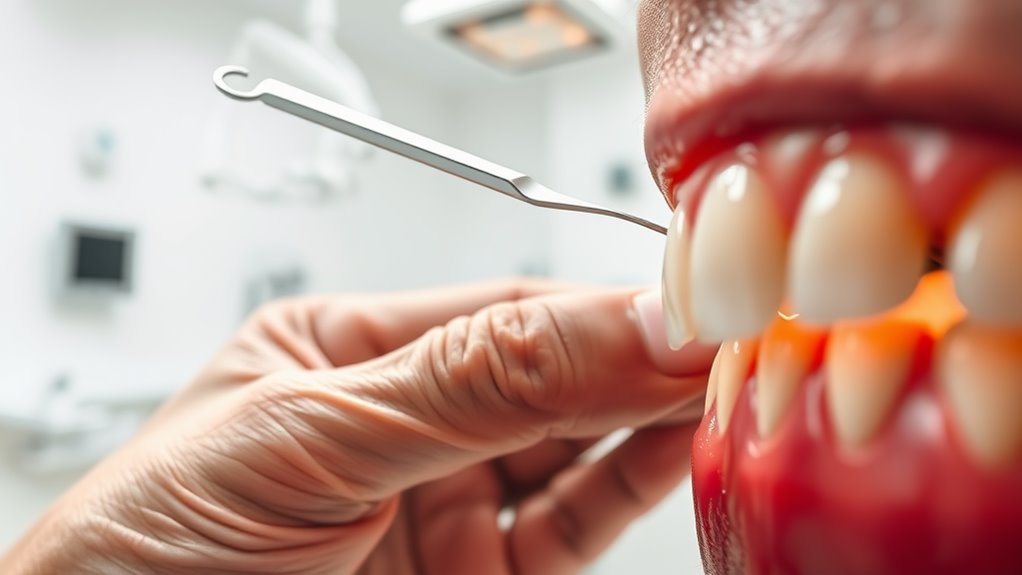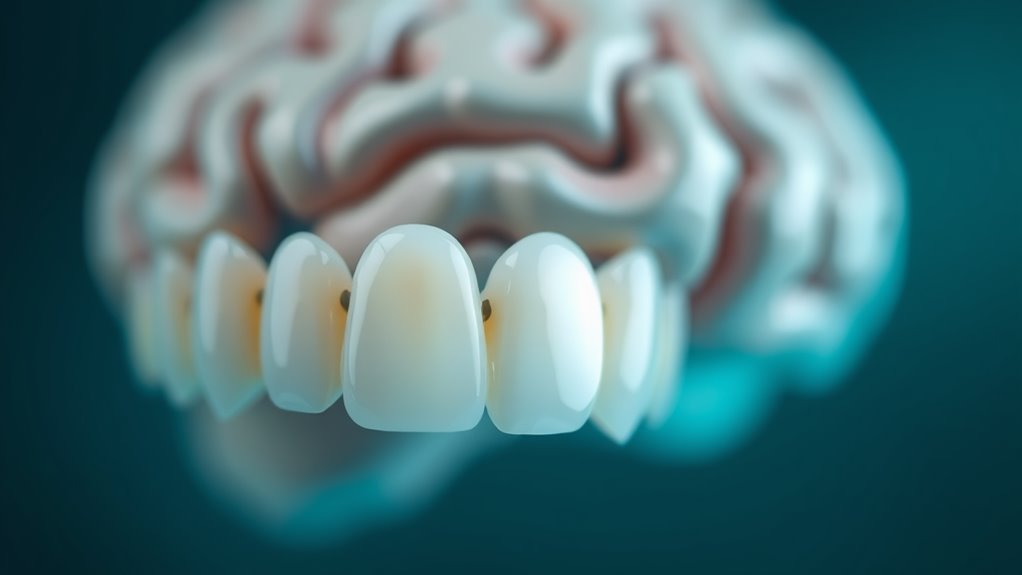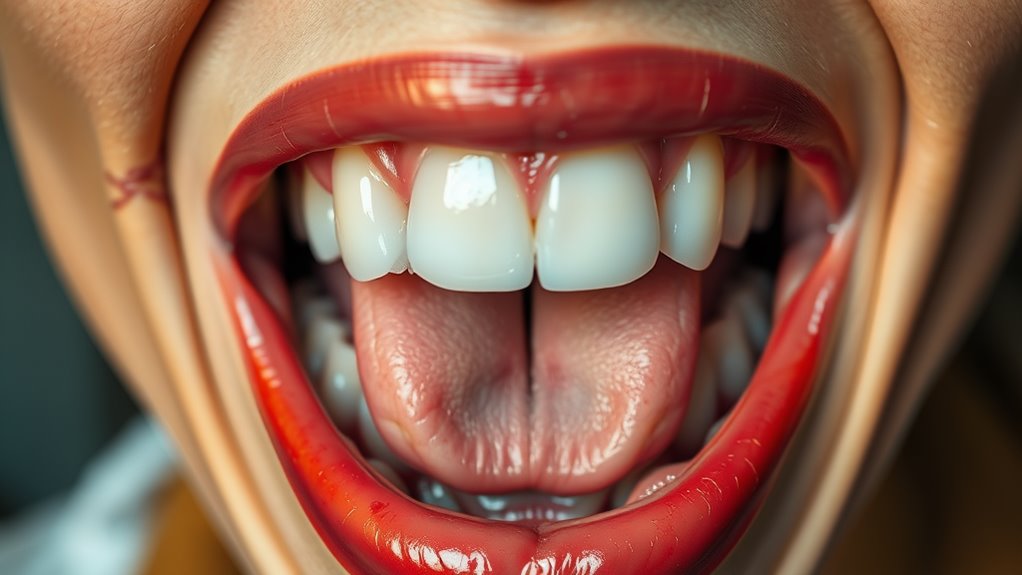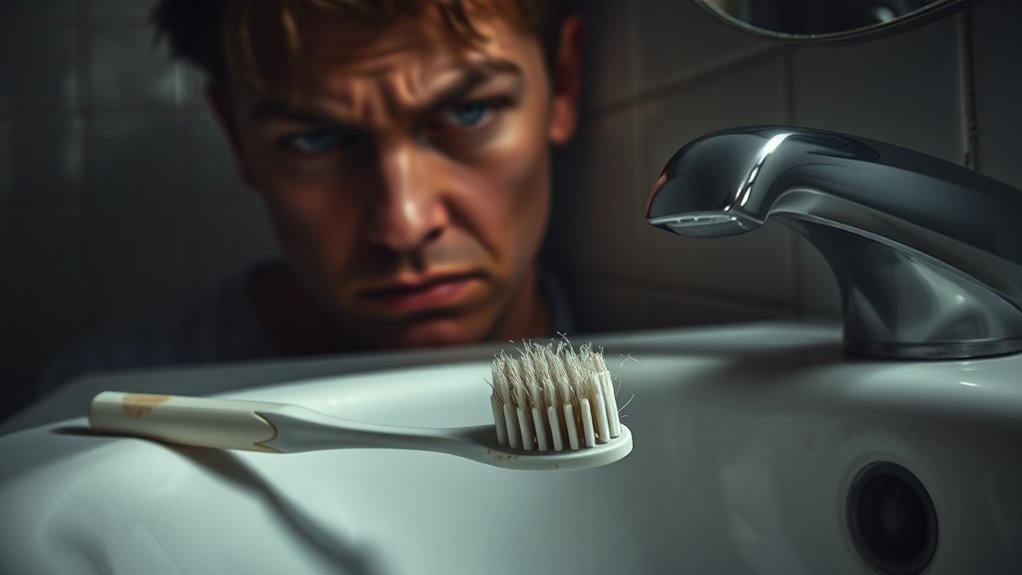Why Your Gums Are Receding (and How to Stop It)
If you’ve noticed your gums receding, it’s crucial to understand the underlying causes and potential consequences. This condition can lead to sensitivity, inflammation, and even tooth loss if neglected. Factors like poor oral hygiene, aggressive brushing, and hormonal changes contribute to the issue. Taking proactive steps can help you maintain gum health. What specific strategies can you implement to prevent further damage and promote healing?
Key Takeaways
- Receding gums can result from periodontal disease caused by bacterial infections and poor oral hygiene practices.
- Aggressive brushing techniques and hard-bristled toothbrushes can wear down gum tissue leading to recession.
- Hormonal changes, particularly during pregnancy or menopause, can increase gum sensitivity and recession risk.
- Consistent oral hygiene, including brushing, flossing, and regular dental check-ups, is essential in preventing gum recession.
- Seek professional help if you notice bleeding gums, increased sensitivity, or receding gum lines to prevent serious complications.
Understanding Receding Gums: Causes and Consequences
Receding gums can significantly impact your oral health if left unaddressed. Understanding the receding gums causes is crucial for effective prevention and treatment.
Commonly, periodontal disease, characterized by bacterial infection, leads to gum deterioration. Poor oral hygiene practices contribute to plaque buildup, exacerbating the issue.
Additionally, aggressive brushing techniques can wear down gum tissue. Hormonal changes, particularly in women, may also result in gum recession.
Genetic predisposition plays a role, as some individuals are more susceptible to gum disease. Proper brushing techniques are essential for preventing further gum issues and maintaining overall oral health.
Common Risk Factors for Gum Recession
Several common risk factors can increase your likelihood of experiencing gum recession. Genetics plays a significant role; if your family has a history of gum disease, you’re more susceptible.
Additionally, poor oral hygiene practices can lead to plaque buildup, exacerbating recession. Habits such as aggressive brushing or using hard-bristled toothbrushes can damage gum tissue.
Moreover, smoking and tobacco use contribute significantly to gum health deterioration. Hormonal changes, particularly in women during pregnancy or menopause, can also affect gum sensitivity.
Finally, conditions like diabetes and certain autoimmune diseases can further heighten your risk, making management crucial for maintaining gum health. Good oral hygiene is essential in preventing complications related to gum recession.
The Impact of Oral Hygiene on Gum Health
Proper oral hygiene is essential for maintaining gum health and preventing recession.
By consistently practicing good habits, you can significantly reduce the risk of gum disease and inflammation.
Here are three key components of effective oral hygiene:
- Brush Twice Daily: Use a soft-bristled toothbrush and fluoride toothpaste to remove plaque effectively.
- Floss Daily: Flossing helps eliminate food particles and plaque from between teeth, areas your brush can’t reach.
- Regular Dental Check-ups: Visit your dentist every six months for professional cleanings and early detection of gum issues. Additionally, neglecting regular dental care can lead to severe oral health complications, including bone loss and systemic health issues.
Effective Prevention Strategies for Receding Gums
Maintaining healthy gums requires proactive measures to prevent recession.
Start by brushing your teeth twice daily with a soft-bristled toothbrush and fluoride toothpaste, ensuring you gently clean along the gumline.
Floss daily to remove plaque between teeth, where your brush can’t reach.
Consider using an antibacterial mouthwash to reduce bacteria buildup.
Regular dental check-ups are crucial for early detection of gum disease.
Avoid tobacco products, as they significantly contribute to gum issues.
Additionally, manage your stress levels, as stress can lead to teeth grinding, further harming your gums. Remember to use gentle flossing techniques to protect your gums and enhance your oral hygiene routine.
When to Seek Professional Help for Gum Issues
How can you tell when it’s time to seek professional help for gum issues?
Recognizing the signs early can prevent further damage.
Consider consulting a dentist if you notice:
- Persistent Bleeding: If your gums bleed during brushing or flossing regularly, it’s a red flag.
- Increased Sensitivity: Heightened sensitivity to hot or cold can indicate gum problems.
- Receding Gum Line: If you observe your gums pulling away from your teeth, it’s crucial to act quickly. Early intervention can help prevent long-term oral health damage.
Ignoring these symptoms can lead to serious complications, so don’t hesitate to seek professional care for your gum health.




